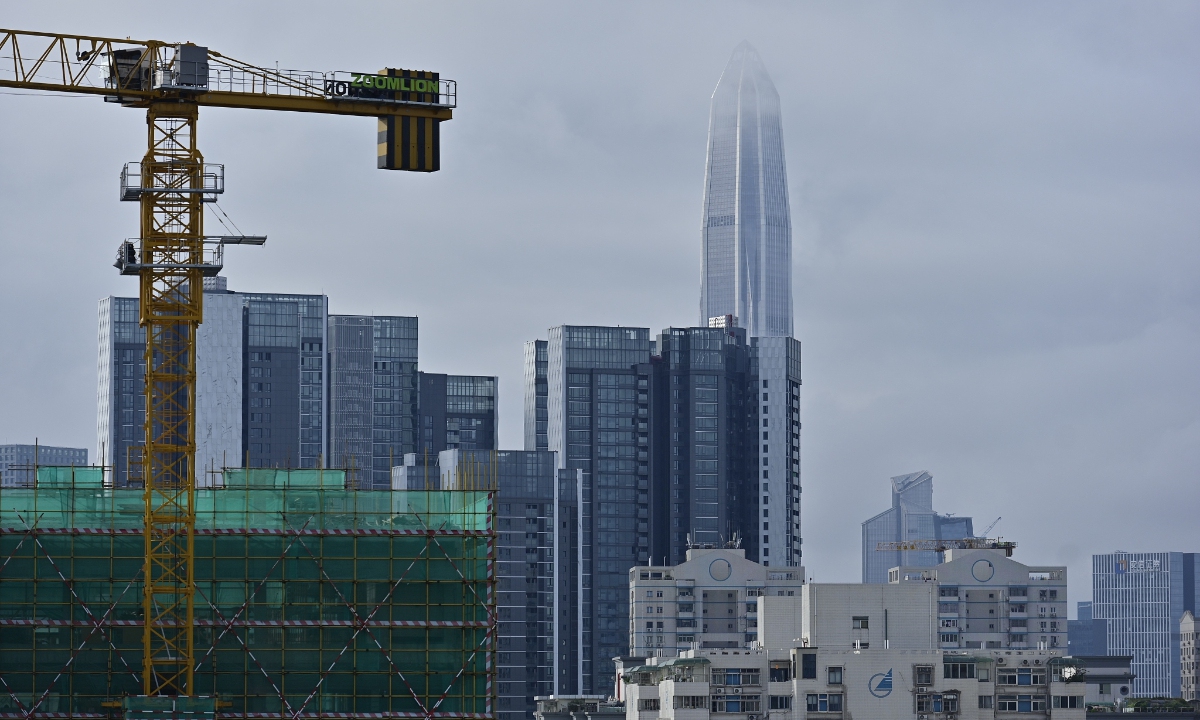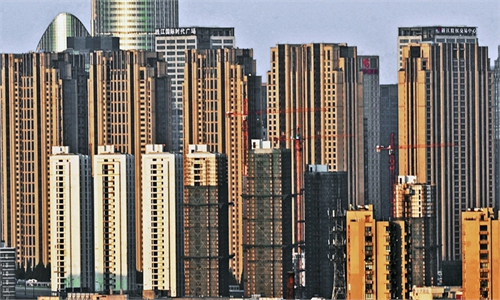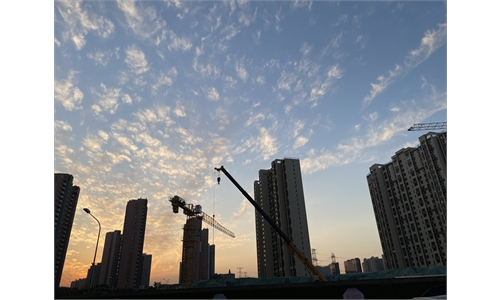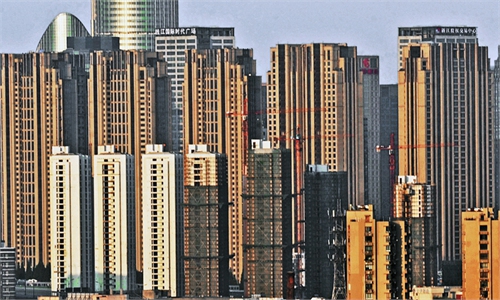
Photo:VCG
China's property sales and housing construction are expected to pick up considerable momentum throughout 2023, inspired by the central government's steady policy support since late 2022. The sector has been struggling for some time, with various large developers mired in debt, and the three-year-long COVID-19 pandemic made things worse to some extent.The urban property sector accounts for nearly 40 percent of Chinese bank lending and 50 percent of the local governments' yearly revenues, so it is imperative for the country to strengthen housing construction and trade, industry insiders and economists say.
The government's ever-widening policy support since November last year should help China's property developers restore health to their balance sheets and revitalize stalled or distressed housing projects. The country's property sales plunged by 26.7 percent year-on-year in 2022, according to data from the National Bureau of Statistics, and property sector investment fell 10.01 percent - the first yearly decline since records began in 1999.
The People's Bank of China, the central bank, and the China Banking and Insurance Regulatory Commission in November promulgated a 21-point plan to improve the balance sheets of the country's high-quality property developers, including greater access to credit for developers and funding to ensure prompt delivery of new homes. These measures are expected to reinvigorate the property sector.
In December, the regulators announced a massive 250 billion yuan of expanded bond financing for housing developers. In addition, the government rolled out a 100-billion-yuan loan support plan to boost rental housing supply in Chinese cities.
The new package of housing market revival measures includes instructing state-owned commercial banks to substantially ramp up lending to the real estate sector, while offering effective financing to enable stronger real estate developers to acquire unfinished housing projects from weaker ones, like the financially battered China Evergrande Group.
The new supportive measures also allow housing developers to extend loans and bonds due in the coming six months by as long as 12 months, and privately owned developers will get the same treatment as state-owned enterprises. Developers will also be able to buy more land to expand their business.
However, the recovery of the industry also depends on other factors, such as average income levels of Chinese workers. Incessant salary raises are able to shore up the sector's healthy growth.
China will strive to generate more demand over the coming three to six months to address the slump in real estate investment and construction, Vice-Premier Liu He said in a keynote speech at the Davos World Economic Forum in Switzerland in January. He underscored the importance of shoring up the real estate industry and protecting indebted developers, as the sector accounts for up to one-fifth of the country's annual GDP.
Thanks to the 2020-2022 deleveraging drive in China, housing bubbles have been largely swept away, leaving more room for the sector's revival in 2023.
However, the regulatory deleveraging has also produced some undesirable side-effects, with a number of property developers suffering liquidity shortages and deteriorating balance sheets. "The risks are noticeable for a handful of leading property developers. If this is not handled properly, risks in the housing sector may grow and trigger systemic risks. That is why prompt steps should be taken," Liu said.
To spur growth in the real estate sector, more preferential policies are being developed and promulgated. Last week, Wuhan, China's eighth-most populous city, moved to ease a key restriction on housing purchases by allowing local households to buy an additional home in the city. The move is expected to be followed by other Chinese cities to prop up property sales.
House buying will serve as a key economic stabilizer for all Chinese provinces in 2023, economists say, as a good number of tier-1 and tier-2 cities are including promotion of housing consumption in their development plans. From the start of the second quarter this year, a significant recovery of the real estate market will be apparent, industry insiders say.
South China's Guangdong Province, with a local GDP of more than $1.86 trillion, voiced support for housing consumption in January, with plans for differentiated mortgage policies and favorable tax rates for owner-occupied homes. Shanghai, the country's most developed industrial city, vowed to strengthen market demand for homes and to meet the reasonable financing requirements of property developers to ensure stable and healthy development of the city's economy. And northeastern Liaoning Province said it will encourage housing consumption by providing equal subsidies and support to buyers of both new homes and second-hand homes.
Along with the constant optimization of the government's preferential policies that aim to boost the virtuous cycle and healthy development of the real estate sector, indexes for property investment and housing sales have both improved. All the positive developments will likely support a soft landing for the property market, once again making the sector an important contributor to economic growth this year and beyond.
The author is an editor with the Global Times. bizopinion@globaltimes.com.cn



